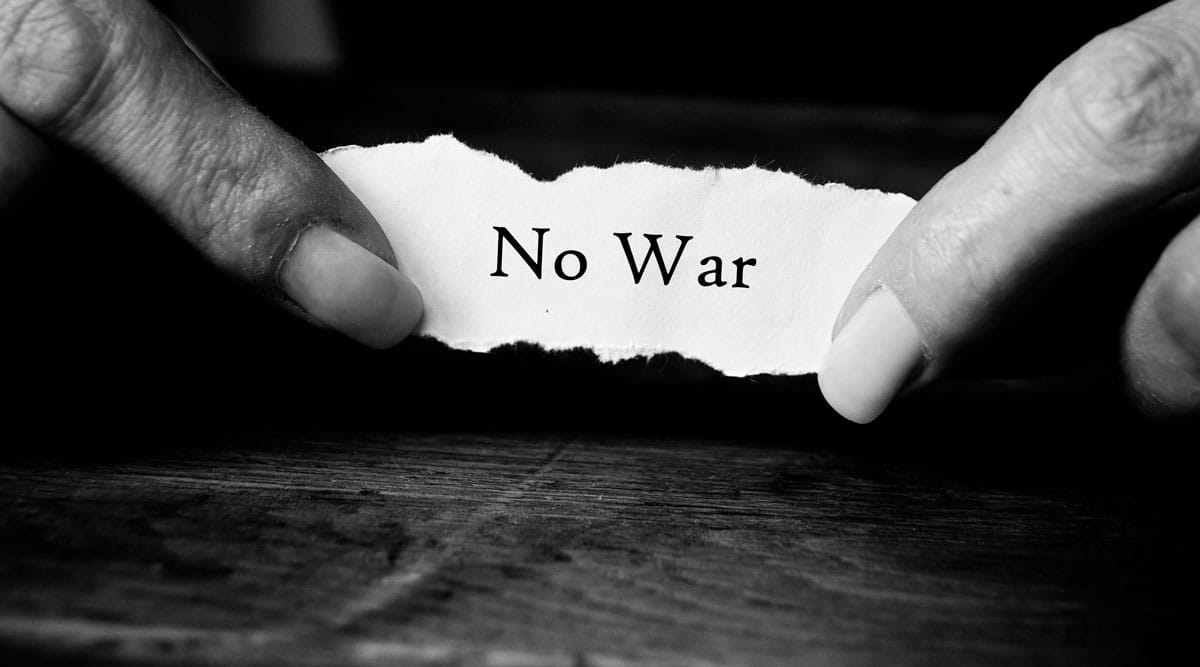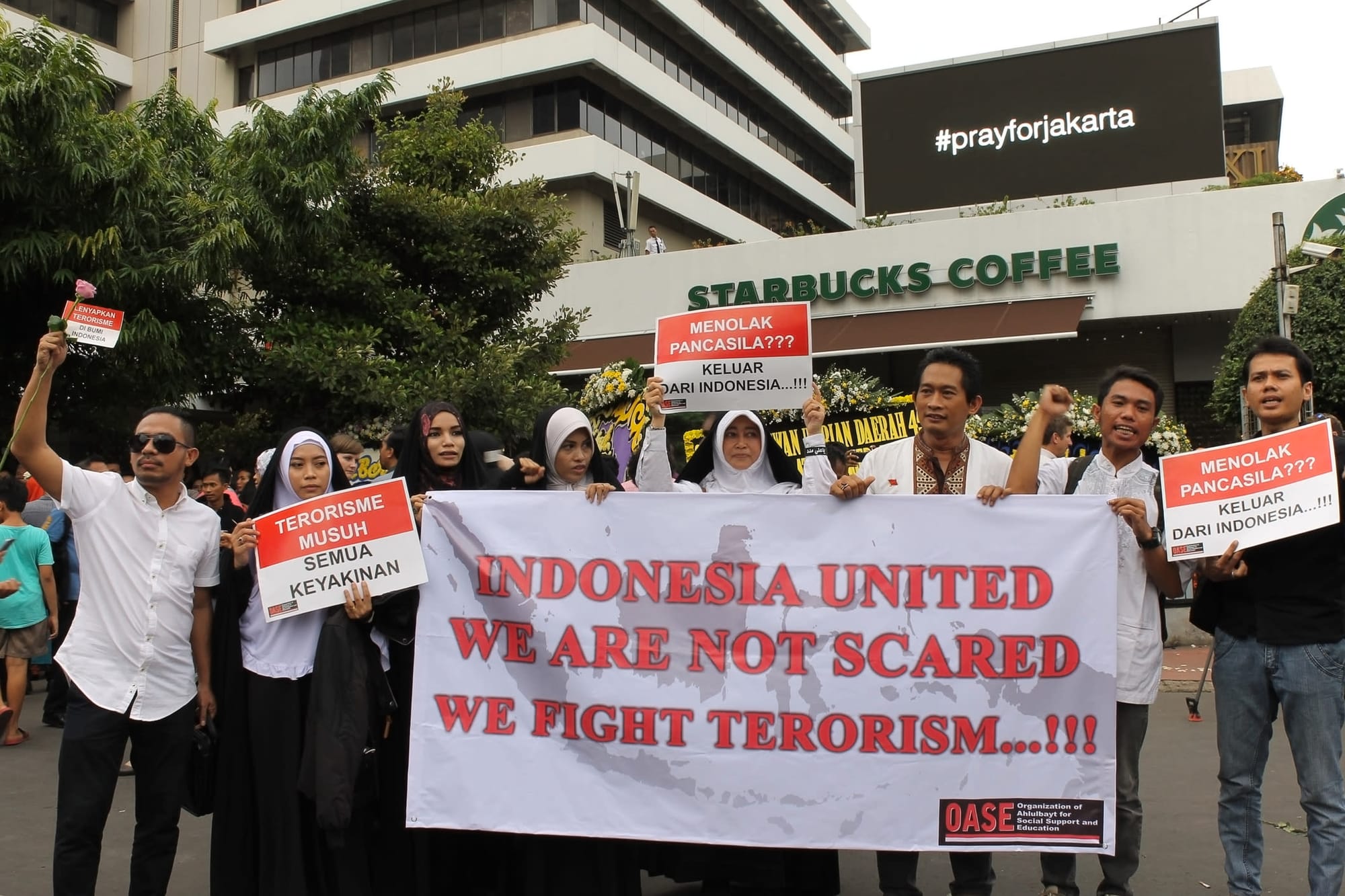
We think of the war on terror as a man’s game with “hard” elements - special forces, the police, drones, sophisticated surveillance.
Monash Professor of International Relations Jacqui True lists the familiar weapons of this long, diffuse war on her fingers. Professor True is also the director of Monash University’s Centre for Gender, Peace and Security. She has been conducting research for the Australian Department of Foreign Affairs and Trade, the Australian Research Council and the United Nations into how women who live and work in radicalised communities can also help prevent terrorism – not with expensive equipment, but by listening to what other women say, and observing how wives, mothers, sisters and daughters are treated.
“Feminist research is always looking at what is silent, what is hidden, what no one is talking about,” she says. “That’s a good methodology for studying violent extremism, right? Because we have been getting it wrong. And we can’t afford to get it wrong. So we have to be asking: Where is the blind spot? And where is the power lying?”
In late November, Professor True co-facilitated an Australian-led dialogue in Semarang, Indonesia with New Zealand, Indonesia, Malaysia, Brunei and the Philippines on the theme of building government and civil society partnerships to implement a gender-based approach to combating violent extremism.
Watch A Different Lens: The future of terrorism

Learning to listen
While she was in Semarang she met women from Marawi City on the island of Mindanao in the Philippines. Between May and October 2017, Marawi City was the site of an armed conflict between the Philippines security forces and Islamic state militants. (Fighters for Isis, al Qaeda and Jemaah Islamiyah have received terrorist training on Mindanao, where some members of its Islamic population have been fighting for years to create an independent state.)
Unfortunately, the Philippines Government pulled out of the Semarang dialogue, says Professor True. “They were the only country without a government representative. But there were, nonetheless, a lot of representatives from Philippines civil society. I co-facilitated a session with a young Filipino woman from Marawi who said ‘well, you know, we actually had the early warning signs’ that the city was on the brink of war.
"What were those signs?
The young woman told her: “We saw young guys arming themselves. We saw the stockpiling of weapons. And other people came to our organisation to report to us – because people don’t report to the government. And we tried to go and speak to the local government about what was happening, and they wouldn’t listen to us.”
The power of influence
It illustrates the point that women need to be recognised as an important source of information, and as a means of resisting terrorism, says Professor True.
She gives the example of a troubled mother, worried about her son’s growing violence and interest in fundamentalism. That mother is far more likely to talk to another woman than to the police. And that is the case in Australia, as well as in countries such as Indonesia and the Philippines, where there is less trust in government agencies and security forces.
Parenting for Peace, a program in the Australian Muslim Women’s Centre for Human Rights supported by the federal Attorney General’s office, is a good example of how a woman’s ability to influence members of her family can be harnessed positively, Professor True says.
Victoria’s community resilience unit, and its ‘Victorian And Proud Of It’ campaign also aims to foster trust and cooperation between Islamic community members and the government. Australia’s women-focused approach found a receptive audience in Semarang, she says. “They were so fascinated with our initiatives.”
The power of equality
Professor True has written a report with Dr Sri Eddyono entitled “Preventing violent extremism: gender perspectives and women’s roles”. The researchers found that promoting gender equality within the family and community was potentially the most powerful way of counteracting extremist views. An allied tactic is to draw on Islamic teachings that promote tolerance. Terrorists often have a history of gender-based violence, she says. And there is a connection between domestic violence and the likelihood of a terrorist “conducting violence against civilians.”
Their research also found that a reliable indicator of whether religious fundamentalism was posing a greater threat in a particular community was a “hardening of attitudes around the mobility of women and girls, their dress, veiling and religious practices.” She gives the example of an Indonesian classroom in which only three young girls are not wearing a veil. The teacher insists they conform. “There’s a narrowing of possibilities. An idea that you are not a good person, or a good Muslim, unless you dress like this.”
'Societies that support women’s equality and women’s empowerment are less likely to be targets for terrorist threats, and less likely to produce terrorists'
The researchers also found that in vulnerable communities women were working together “under the radar” to prevent and counter violent extremism. In Poso, Indonesia, for instance, which has a history of communal and inter-religious conflict, women have established their own early warning system: when a rumour spreads that might incite violence, they contact one another.
“There is also research showing – and this is a correlation and not necessarily a cause – that societies that support women’s equality and women’s empowerment are less likely to be targets for terrorist threats. And are less likely to produce terrorists,” Professor True says.
She is now working on an 18-month project commissioned by the United Nations through Japan, examining gender and violent extremism in Indonesia and Bangladesh. “That research is developing alongside UN women’s intervention, which is an intervention designed to build social cohesion and resilience. It includes micro-finance projects, and bringing women together, particularly women from different religious and ethnic backgrounds in both countries.”
Societies that allow women to participate freely – to earn money, to be educated, to be mobile – are the best defence against fundamentalist ideology, Professor True says. “We need to look at everyday violence and extremism that is concealed, tolerated within a community.”





